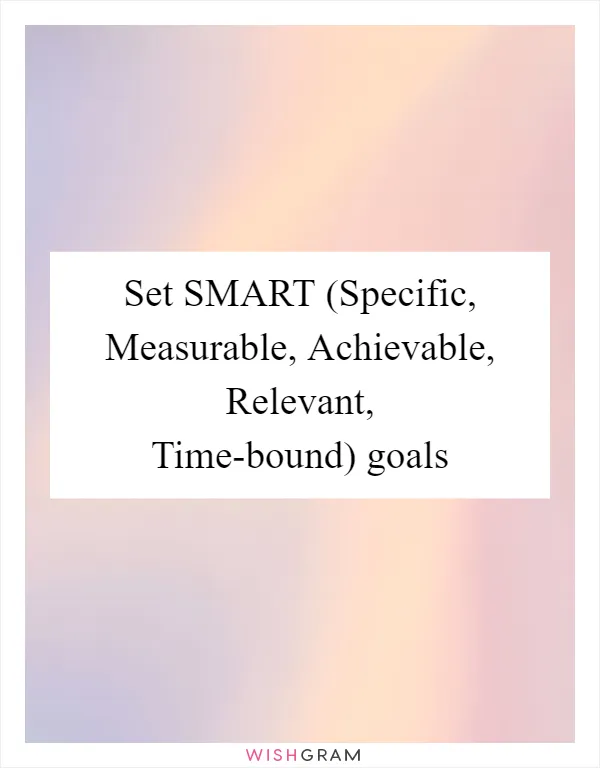Set SMART (Specific, Measurable, Achievable, Relevant, Time-bound) goals
Setting SMART goals is a crucial aspect of self-improvement. By following this framework, individuals can enhance their chances of achieving their desired outcomes and making progress in various areas of their lives. SMART goals are Specific, Measurable, Achievable, Relevant, and Time-bound, providing a clear roadmap for personal growth and development.
Firstly, specificity is key when setting goals. Instead of vaguely stating, "I want to improve myself," it is more effective to define a specific objective. For instance, "I want to improve my public speaking skills by participating in a Toastmasters club and delivering at least three speeches within the next six months." This specific goal allows for focused efforts and a clear direction towards self-improvement.
Measurability is another important aspect of SMART goals. By establishing measurable criteria, individuals can track their progress and determine whether they are moving closer to their desired outcome. For example, if the goal is to read more books, a measurable target could be, "I will read one book per month for the next year." This way, progress can be easily monitored and adjustments can be made if necessary.
Achievability is a crucial consideration when setting goals. It is important to set objectives that are challenging yet attainable. Unrealistic goals can lead to frustration and demotivation. For instance, if someone has never run before, setting a goal to complete a marathon within a month may not be achievable. Instead, starting with a goal to run a 5K race within three months would be more realistic and feasible.
Relevance is another vital factor in goal setting. Goals should align with an individual's values, interests, and long-term aspirations. Setting goals that are personally meaningful increases motivation and commitment. For example, if someone is passionate about environmental conservation, a relevant goal could be, "I will reduce my carbon footprint by using public transportation or biking to work at least three days a week."
Lastly, time-bound goals provide a sense of urgency and prevent procrastination. By setting a specific timeframe, individuals are more likely to take action and stay focused. For instance, instead of saying, "I will learn a new language someday," a time-bound goal could be, "I will enroll in a language course and achieve conversational fluency within one year."
